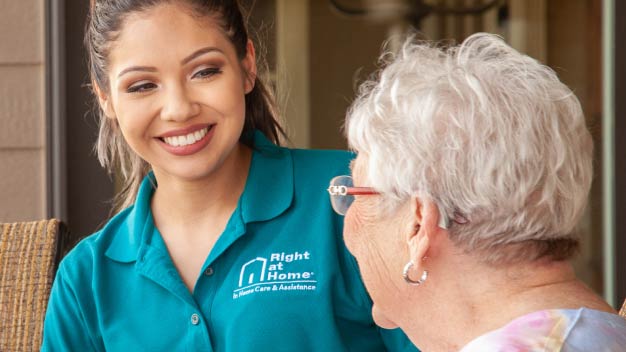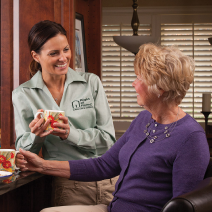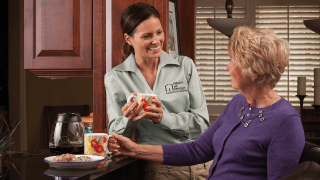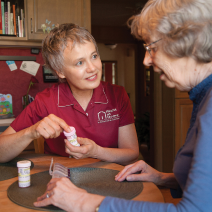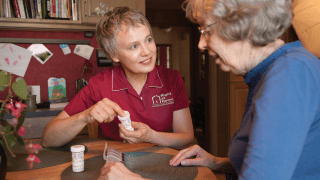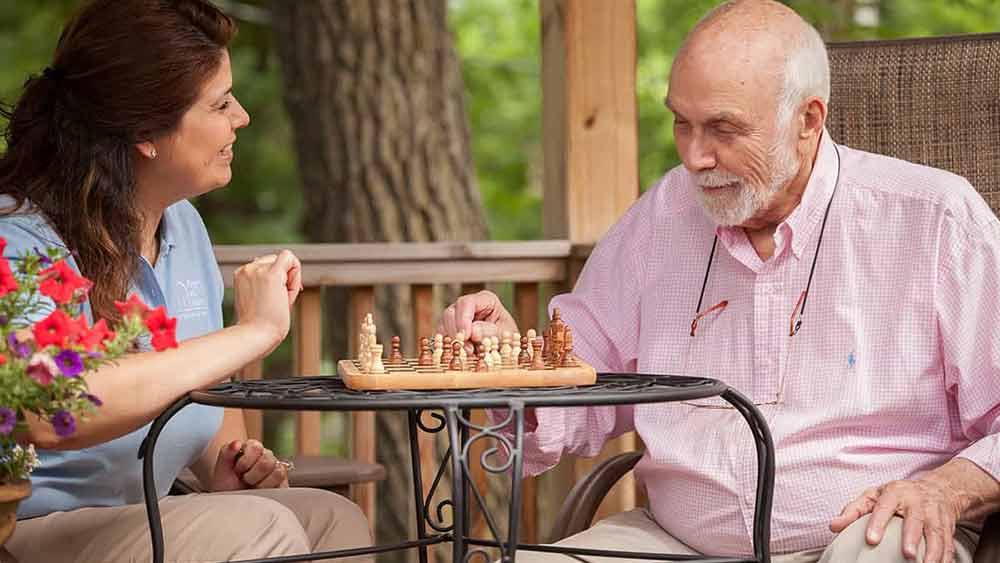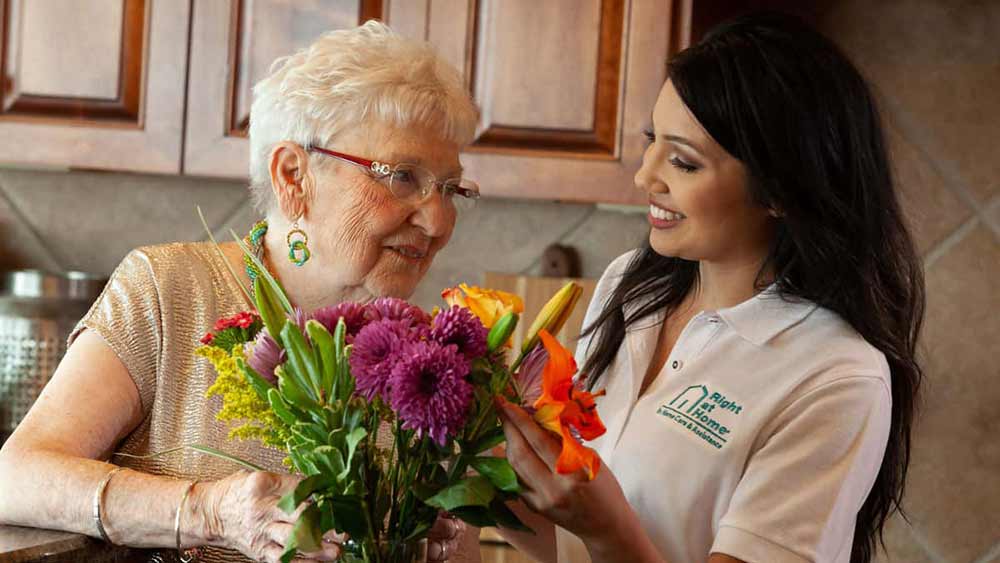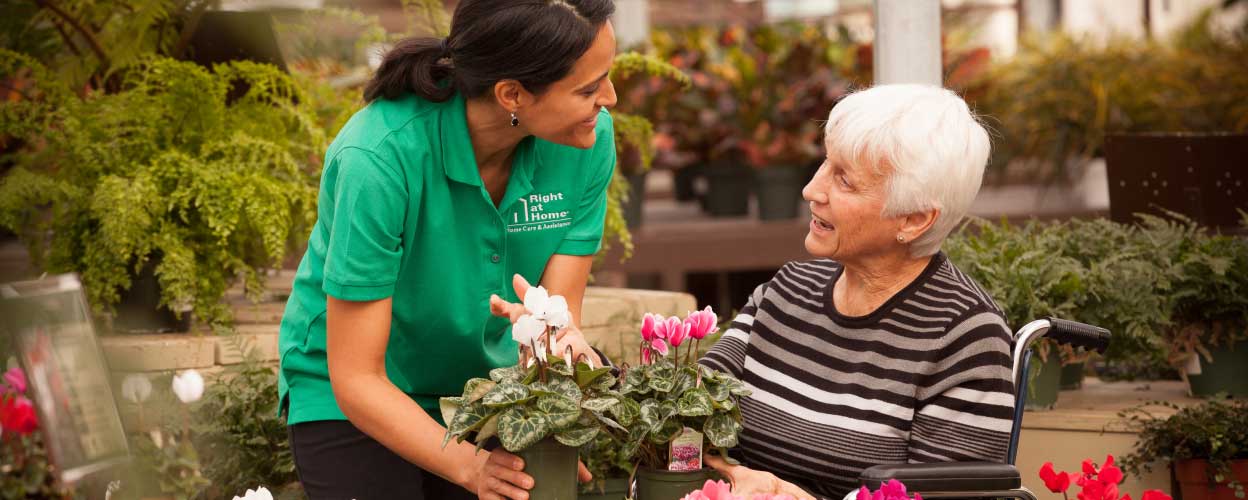

Alzheimer’s, Dementia and Cognitive Change
No matter the cause, conditions that result in a change of mood, memory or the thinking process are especially tough. When these are associated with aging, we often call them “Alzheimer’s,” but in reality, Alzheimer’s is just one of many different disorders of the brain.
Caring for a family member or friend with cognitive difficulties is demanding. If you’re doing it by yourself, it’s even tougher. At times, it can feel like you’re battling both the disease and the person. They need a sense of normalcy, but they don’t always act like they want it. Even when you’re doing everything right, it can feel like you’re doing everything wrong. It drains you emotionally and physically.
We believe that it doesn’t have to. Our approach is about helping you reclaim precious moments with your loved one, so instead of worrying about their bad days, you can celebrate their good days. Most of all, we want to be there for both of you so you don't have to do it alone.
Right at Home offers a customized care plan with a combination of personal care, companionship and homemaking, and just as importantly, we can provide respite care for you and your other loved ones.
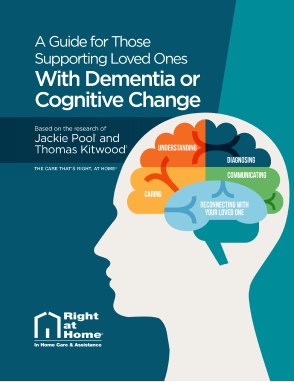
Feeling Lost?
Let Us Help You Care for Those With Dementia
Need time for yourself? We’re there for you at any time, anywhere.
Right at Home’s Dementia Guide Video Series
Four Ways We Can Help
The Latest Thinking in Cognitive and Dementia Care
